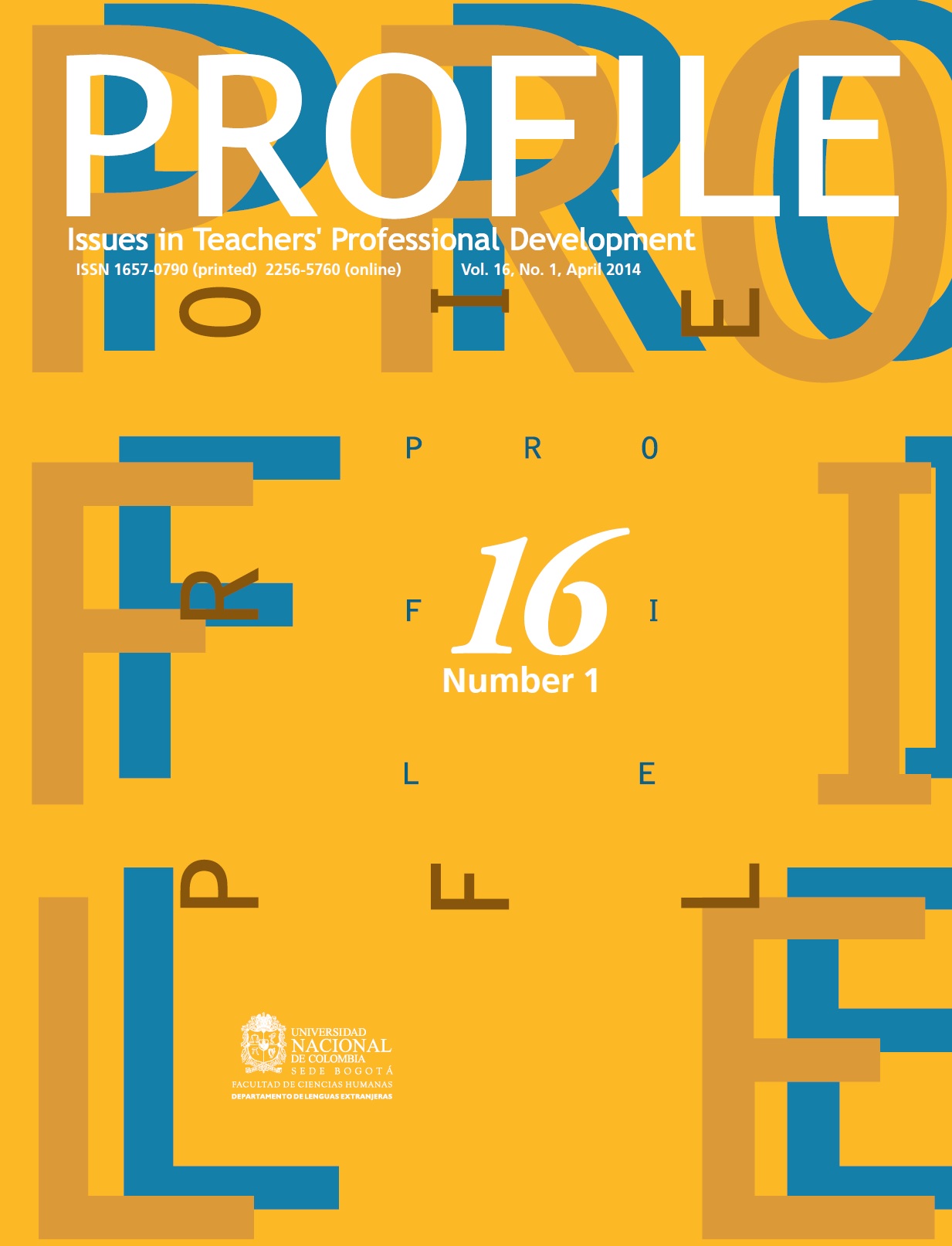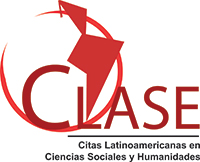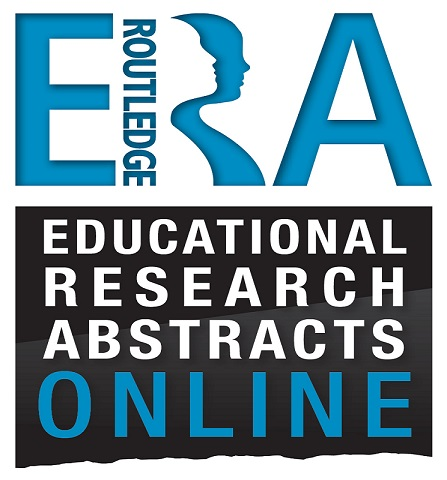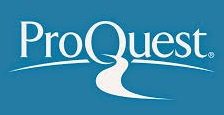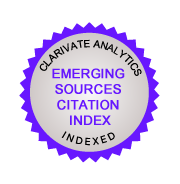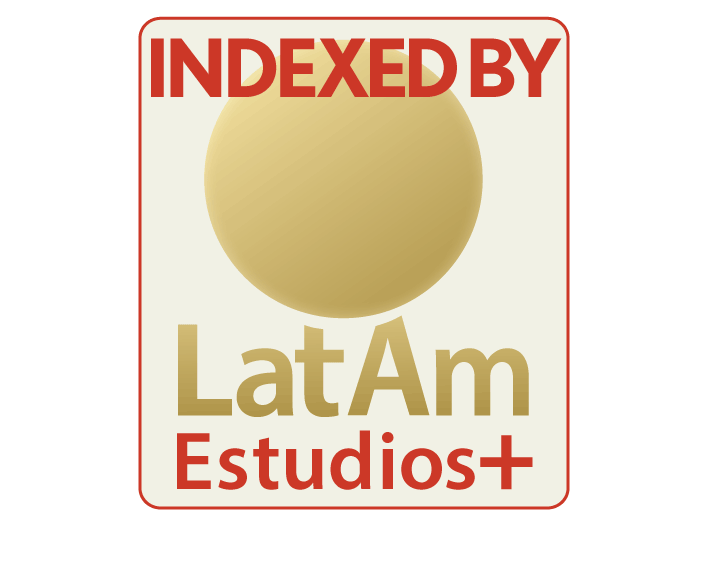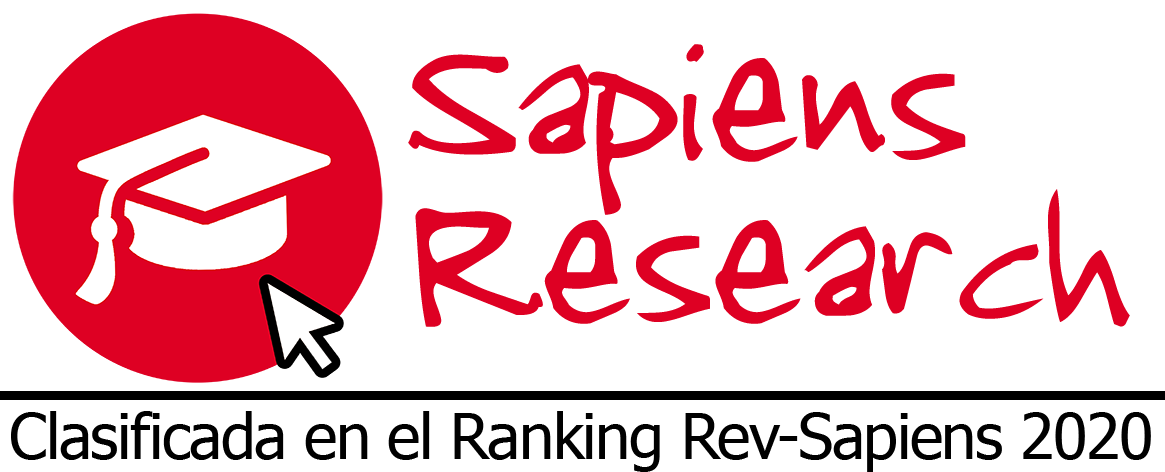Reading Through ESP in an Undergraduate Law Program
DOI:
https://doi.org/10.15446/profile.v16n1.36823Keywords:
Communicative approach, English for Specific Purposes (ESP), specialized reading (en)This article presents the results of a study conducted among a group of law students in fift h-level English at a Colombian private university, which analyzed the effects of applying reading through English for Specific Purposes under the criteria of the communicative approach. Data were collected through semi-structured interviews, the students’ oral and written samples and the researcher’s journals. Findings show that specialized reading motivates students to increase both vocabulary and knowledge about their own field of study and also encourages them to use English in everyday situations.
En este artículo se presentan los resultados de una investigación llevada a cabo en una universidad privada colombiana, con estudiantes de quinto nivel de inglés del programa de derecho, cuyo propósito era analizar los efectos de aplicar lectura a través del inglés con propósitos específicos bajo el criterio de un enfoque comunicativo. Los datos fueron recolectados a través de entrevistas semi-estructuradas, reportes orales y escritos de los estudiantes y el diario del profesor. Los resultados muestran que la lectura especializada motiva a los estudiantes a ganar vocabulario y conocimiento acerca de su propio campo de estudio, a la vez que los anima a usar el inglés en situaciones reales.
PROFILE
Issues in Teachers' Professional Development
Vol. 16, No. 1, April 2014 ISSN 1657-0790 (printed) ISSN 2256-5760 (online)
doi: https://doi.org/10.15446/profile.v16n1.36823
Reading Through ESP in an Undergraduate Law Program
Lectura a través de inglés con propósitos específicos en un programa de derecho de pregrado
Gladis Leonor Arias Rodríguez*
Universidad Santo Tomás—Tunja, Colombia
*gladisariasnombre@yahoo.com.co
This article was received on January 17, 2013, and accepted on August 6, 2013.
This article presents the results of a study conducted among a group of law students in fifth-level English at a Colombian private university, which analyzed the effects of applying reading through English for Specific Purposes under the criteria of the communicative approach. Data were collected through semi-structured interviews, the students’ oral and written samples and the researcher’s journals. Findings show that specialized reading motivates students to increase both vocabulary and knowledge about their own field of study and also encourages them to use English in everyday situations.
Key words: Communicative approach, English for Specific Purposes (ESP), specialized reading.
En este artículo se presentan los resultados de una investigación llevada a cabo en una universidad privada colombiana, con estudiantes de quinto nivel de inglés del programa de derecho, cuyo propósito era analizar los efectos de aplicar lectura a través del inglés con propósitos específicos bajo el criterio de un enfoque comunicativo. Los datos fueron recolectados a través de entrevistas semi-estructuradas, reportes orales y escritos de los estudiantes y el diario del profesor. Los resultados muestran que la lectura especializada motiva a los estudiantes a ganar vocabulario y conocimiento acerca de su propio campo de estudio, a la vez que los anima a usar el inglés en situaciones reales.
Palabras clave: enfoque comunicativo, inglés con propósitos específicos (ESP), lectura especializada.
Introduction
Because of rapid globalization, students and professionals feel a need to learn English in order to be competitive in their studies or in their careers. In addition, we are living the age of specializations. People are experts in different fields of knowledge; the best way to obtain such knowledge is through being familiar with different languages, especially English because it is one of the most commonly used languages around the world. About this issue, Butler-Pascoe (2009), says:
Today with the emergence of English as the prominent language in our increasingly technological and global society, the study of ESP has assumed a sense of urgency, especially in countries that are attempting to restructure the manner in which students learn and perform English. (p. 1)
The previous statement encourages teachers to think about the possibility of including English for Specific Purposes (ESP) as a tool for students who want to delve deeper into specific fields of knowledge and who want to improve their abilities in the foreign language.
As a teacher at USTA, I have seen directors and students interested in working in such varied careers as law, architecture, civil engineering, electronics, and other fields, which is what motivated me to conduct my research with a group of fifth-level English students in the law program, following the criteria of the descriptive case study.
Implementing ESP under the parameters of the communicative approach allowed students to practice reading as the primary activity that motivated them to find more information of interest to them. At the same, they had the opportunity to develop other skills, such as listening to their partners, talking about common topics, discussing and arguing according to their own thinking, and writing their own summaries and opinions from the readings. These tasks helped me gain insights into the students’ work and allowed me to draw final conclusions about the study.
Literature Review
The main topics that support this project from a theoretical perspective are: the background and characteristics of ESP, reading and ESP under the communicative approach, and the reading process.
Background and Characteristics of ESP
My teaching experience at schools and universities has shown me how the process of learning English has been changing according to the students’ needs. ESP has been an important component of that change; according to Anthony’s (2007) experience, teachers are much more aware of the importance of needs analysis in order to select materials that are closely related to the learner’s goals. Thus, we can infer that advanced and adult learners feel the need to acquire knowledge of their own fields of study. Hence, English became a tool to acquire information from different disciplines such as engineering, architecture, computer science, health, environmental protection, mechanics, accounting, and economics, among other fields.
ESP might be described as a specific branch of English as a foreign language on the training of students in specific areas, Anthony (2007) points out that English can be used in academic studies or the teaching of English for travel or professional purposes, which represents a population of professionals who are involved in their own fields of study; hence, they need to delve deep into specific topics, and the ESP approach can be useful as a learning methodology.
At the same time, Gatehouse (2001) notes that ESP is not only a learning approach but also a means of development because it allows them to gain the knowledge they need to face the world in a productive way.
ESP Characteristics
The characteristics of ESP create a true picture of its fundamental nature and its benefits for guiding teachers in the implementation of this approach in the classroom. Strevens (1988) defined absolute and variable characteristics, and Dudley-Evans and St. John (1998), in the Japan Conference of ESP, presented the following modifications:
Absolute characteristics:• ESP is defined as the learners’ specific needs.
• ESP makes use of the underlying methodology and activities of the discipline it serves.
• ESP is centered on the language (grammar, lexis, register).
Variable characteristics:
• ESP may be related to or designed for specific disciplines.
• ESP may be used in specific teaching situations, which is different from everyday English.
• ESP can be designed for adult learners, professional work situations, and university or secondary school levels.
• Most ESP courses assume some basic knowledge of the language system, but ESP also can be used with beginners. (pp. 4-5)
Finally, English instructors use an ESP approach as the basis of their syllabus, taking into account the learners’ needs, the reasons for learning and also the students’ personal specialized knowledge, such as using English for communication.
Reading and ESP as a Communicative Approach
The communicative approach is based on the idea that learning a language successfully comes from communicating “real” meaning; thus, when learners are involved in real communication, their natural strategies for language acquisition are being used, which facilitates their learning to use the language. Accordingly, Hutchinson and Waters (1987, p. 25) note: “ESP is an approach to language teaching in which all decisions as to content and method are based on the learner’s reason for learning,” which means that when the teacher takes into account the students’ disciplines to guide class activities, the students are conscious of their process of learning and the importance of learning another language. Likewise, Jin, Singh, and Li (2005) found in their own research that one of the teacher’s tasks in class is to create strategies to help students understand texts. This approach is an efficient way to understand the reading materials and the main ideas. This finding makes me think about the importance of teachers in supporting and motivating students’ work and also encouraging reading practice in ESP.
Materials in ESP
Another important aspect of reading through ESP is to take into account that the communicative approach is the material, because it is the teachers’ main resource. Torregrosa and Sánchez-Reyes (2011, p. 93) state that, “authentic materials are important tools for use in ESP classes for, as we have clearly shown, they motivate and immerse learners in specific areas of the target language in which practice is needed.” Thus, real texts are always preferred because they are rich in content and are usually based on real experiences and investigations. Jin et al. (2005, p. 19) suggest: “Teachers may help students to access authentic English language materials that could be from internet, international newspapers and magazines in order to provide students with authentic reading materials. Such materials offer students insight into other nations, peoples, cultures and everything relevant to language.” Therefore, these authentic materials permit students not only to have real communication but also to exhibit their language skills and improve their background knowledge as a tool for use in their daily lives.
ESP and Reading
In this research, reading is used under the parameters of ESP, which bestows upon students the main source of knowledge and also facilitates discussion of the topics within their own field of study. Anthony (1997) argues that reading is relevant because it provides learners with the vocabulary and the knowledge that will be used in their professions; accordingly, many educational institutions have adopted ESP reading materials as the basis of their curricula. The goal of reading is to obtain information one needs for specific or personal purposes; thus, reading comprehension involves understanding, decoding, and constructing meaning from a text and reading through a process.
The Reading Process
In addition to following the parameters of the communicative approach, this research takes into account the reading process (pre-reading, while-reading, and post-reading), through which students perform an efficient task:
• Pre-reading prepares students to read efficiently, which facilitates comprehension and is related to students’ backgrounds. Lebauer (1998, p. 5) notes: “Pre-reading activities can improve students’ cognitive burden while reading because prior discussions will have been incorporated.” Thus, teachers have to provide supplemental activities such as brainstorming, differencing, guessing, and analyzing titles and pictures, among other activities.
• While-reading allows students to carry out “active reading” with activities such as arguing, summarizing, questioning, evaluating, and comparing the text with their own personal experience. It is necessary that students avoid using dictionaries while engaged in these activities; however, teachers can encourage students to use strategies such as skimming and scanning for faster and more in-depth reading practice. At the same time, Ur (1996) and Vaezi (2001) suggest such strategies as making predictions, integrating prior knowledge, re-reading, making use of context or guessing, breaking words into their component parts, reading in chunks and monitoring one’s reading.
• Post-reading exercises depend on the purpose of reading and the type of information the reader is interested in gaining. With reference to the previous statement, Barnett (1988, p. 5) remarks: “Post-reading exercises first check students’ comprehension and then lead students to a deeper analysis of the text.” Finally, reading has to accomplish the function of imparting new knowledge in tandem with activities such as group discussion, summarizing, questioning, filling out charts, completing a text, listening to or reading other related materials, and role-playing. Hence, students must have the autonomy to choose the best techniques for them, according to their own needs and learning styles.
Method
The method chosen was case study because this approach permits detailed description and analysis of a particular situation within a specific community. Yin (1994) suggests the application of some specific procedures to perform the qualitative descriptive case study:
• Design a case study protocol to prepare the characteristics and parameters of the investigation.
• Conduct the case study to develop activities and collect the data.
• Analyze the case study evidence to construct the conclusions, recommendations or theories.
Setting and Population
This research was conducted at Universidad Santo Tomás Tunja (USTA), which is a private institution of higher education in Colombia, and which has one of its branches in Tunja. It offers programs such as Law, Architecture, Civil Engineering, Systems Engineering, Electronic Engineering, Mechanical Engineering, Business Administration and Accounting. English is part of the university’s curriculum, and students are required to take five levels of English. The programs require students to develop reading comprehension abilities in their subject matter; given this requirement, students must practice reading about topics in their field of study.
This study sample comprised 62 students of law (35 females and 27 males between 20 and 24 years), who were attending fifth level English. Trochim (2006) notes that to have a random selection method, the population must have equal probabilities of being selected. Thus, in order to be impartial in the selection of students, 12 students from the group of 62 were chosen at random to participate in this research; however, the activities were carried out with all of the students. Additionally, the researcher informed the students about the development of this study and received permission from each student in a signed format, as well as from the directors of the university.
Instruments for Data Collection
The researcher chose the following instruments for data analysis: semi-structured interviews, students’ oral and written samples, and researchers’ journals.
Semi-Structured Interviews
Silverman (1993) states that semi-structured interviews are conducted based on relevant topics that generate specific questions, which means that not all of the questions are designed before the interview; most of the questions are asked during the interview according to the interviewee’s answers. Consequently, this type of interview was implemented because it encourages a relaxed relationship between the interviewer and the interviewee; moreover, this method provides information about students’ behaviors, attitudes, and beliefs, and it contributes to understanding the research participants’ perspectives or experiences. Appendix A contains the interview questions.
Students’ Oral and Written Samples
Students’ oral and written samples are products of students’ work performed in class during the reading sessions. Accordingly, analyzing the samples is fundamental to answering the questions and to performing the data analysis of this research.
Researcher’s Journals
In this study, journals include the teacher’s written responses to teaching events. The journals serve to record principal aspects that emerge from the processes of teaching and learning. Burns (2003) notes: “Journals provide continuing accounts or perceptions and thought processes, as well as of critical events or issues which have surfaced in the classroom.” In this research, teachers’ journals are used for obtaining written registers about students’ work during reading activities and also to reveal the students’ capacities for solving problems and making decisions about their own fields of study.
Objectives
General Objective
• To analyze the effects of applying reading through ESP under the criteria of the communicative approach, with a group of students from the USTA Tunja law program who are at the fifth level of English.
Specific Objectives
• To demonstrate how specialized ESP reading helps students gain a deeper knowledge of their own field of study.
• To promote students’ use of English for debating law topics.
• To increase the students’ acquisition of vocabulary in the foreign language through reading specialized texts.
Main research question
What might be the effects of applying reading through ESP under the criteria of the communicative approach to a group of fifth-level English students from the law program at USTA, Tunja?
Sub-Questions
• In what way does reading under the parameters of ESP help students to gain better knowledge of their own field of study?
• How does reading under the parameters of ESP enable students to discuss topics of law?
• How does reading about topics of law contribute to students’ acquisition of specialized vocabulary?
Pedagogical Intervention
This project promoted the reading of specialized texts under the parameters of ESP and the com-municative approach to enhance students’ analysis and discussion about topics of their respective fields of study. The following procedures were carried out during English classes:
• The researcher presented the project to students and explained the benefits of participating with regard to experience and knowledge acquisition.
• A bank of law texts (Appendix B) were gathered as the main reading sources (including some Internet pages for supplemental information).
• The researcher explained to students, by way of examples, the processes of reading (pre-reading, while-reading, and post-reading) and the reading techniques to be used throughout the project.
• Students read specialized texts and prepared presentations (written and oral); sometimes they had to read extra information to defend their position in front of the group or the teacher. Moreover, they had to be ready to answer questions that clarified their viewpoints.
• The topics that generated discussion and analysis among the students included: divorce, human rights, the consumption and legalization of drugs, and crime and the justice system in American society.
Results
The process of data analysis was as follows. The researcher collected the students’ written samples, and the students were then supervised in order to identify the use of specialized vocabulary and the management of knowledge about law. The researcher’s journal contained the description of all class activities from August to November. The semi-structured interviews were applied to students during the months of October and November, which included the students’ impressions about the development of this research according to the questions asked previously by the researcher. After analyzing all the information, it was necessary to triangulate the data. According to Freeman (1998), triangulation involves including multiple sources of information or points of view on the phenomenon or question that is being investigated.
After data analysis, two categories emerged that answered the main questions: Acquisition of Specialized Knowledge About Law and the Capacity to Discuss It, and Acquisition of Specialized Vocabulary.
Acquisition of Specialized Knowledge About Law and the Capacity to Discuss It
For students or professionals, reading is a common part of their daily tasks; in the present research, specialized texts increased students’ motivation because they typically read a large amount of information about Colombian law. Thus, when the students started reading in English about the application of law in the United States—various types of crime and how those crimes are punished—they became totally engaged in reading and also in acquiring new information about the given topics. In fact, the advantages of ESP are perceived in the reading activities. In support of this phenomenon, Tratnik (2008, p. 12) argues: “Special attention in ESP teaching should be focused on ways of promoting skills, which encourage and enable learners to respond to different day-to-day situations and react properly in special circumstances.”
At the same time, it can be inferred from the students’ comments that the readings used in class motivated their acquisition of knowledge and also helped them to understand specific aspects of American legislation, which is meaningful to them as law students. One of the students discussed this issue, as follows:
This reading has helped me understand the regionalisms from other countries and laws that are used abroad; there are things that we can relate to our country. (Interview, Question 2, Student 5)
There is so much information to learn about American law that requires greater understanding of English. Within American legislation, we need to learn about how it operates in each state and how to solve conflicts because in federal states, not everyone has the same laws and each state handles lawsuits in different ways. (Interview, Question 3, Student 6)1
The researcher observed how students reacted to the texts about American law (Appendix B); as a result, the students felt that this type of reading was interesting for them because they could compare and analyze the pros and cons between the Colombian and the American Constitutions. These topics motivated the students to investigate additional information for their own edification, which generated a reading culture in English that manifested in a spontaneous way as the result of the research activities. As the researcher noted in the journal:
During reading, students were engaged in acquiring information in their own field of study within the context of the United States, such as penal justice, the organization of the government, types of crimes, and the consumption of drugs and punishments, among others. (Journal, Researcher)
Additionally, we can see how our students, friends, and people in general build their own schema or prior knowledge through time according to their personal experiences of learning; this information becomes meaningful in the reading process when readers link their previous knowledge with new knowledge, which in turn permits wider comprehension. Strangman and Hall (2004, p. 21) report: “Research studies have clearly established the importance of background knowledge to reading and understanding texts.” Likewise, Alyousef (2005) remarks that studies have shown how the schema involves reading comprehension, which was also observed in the present research when students used their background knowledge to understand and build new knowledge. One student discussed this issue in the interview:
I think it is very interesting because it is strengthening our own field of study and our profession; it is helping us to delve into the topics of our interest, especially this semester because we have seen a lot of vocabulary; the readings have been connected to the issues we are learning about. (Interview, Question 2, Student 2)
Moreover, we can see that students used their prior knowledge and acquired new knowledge when arguing about different legal topics; in addition, we see that fifth-level English students are able to study themes from a legal perspective, which also facilitates the emergence of the students’ identities within their own fields of study. The researcher perceived that situation as follows:
During classes, it was evident that students analyzed the different texts using their prior knowledge of English and their law backgrounds to understand the information of the cases and the relationship of law here and in the United States; it was reflected in the processes of reading because sometimes the students analyze the text themselves or ask their partner about a legal situation. (Journal, Researcher)
Reading specialized texts permitted students to enrich their background knowledge and to apply it to their next written assignment (Appendix C) and also in subsequent debates or oral reports.
Because students’ acquisition of knowledge is directly related to students’ needs in the present study, the researcher agreed with the use of reading under the parameters of ESP as a way to fulfill students’ needs in terms of knowledge. Anthony (2007, p. 3) states: “Subsequently, they can design courses that meet the specific needs of students and maximize learning in a way that no field expert could.” Thus, when students read about topics in which they are involved, learning occurs as a consequence of this activity. In the USTA, the law students must learn about the legislation of foreign countries as part of their integral education, and this goal was likely met during the course of this research project.
Integrating reading and speaking improves students’ communicative competence; as Omaggio (1986, p. 20) notes: “Oral proficiency includes the ability to communicate verbally in a functional and accurate way in the target language.” Thus, the activities developed here show how students gained in fluency through authentic speaking practice. Indeed, after reading, the students always participated in oral debates, discussions, or reports; additionally, the students were comfortable about declaring their own points of view in those discussions. This phenomenon is discussed in the researcher’s journals:
Discussions and debates were effective ways to introduce speaking into reading comprehension; these activities provided a notable opportunity for genuine communication similar to real life exchanges of information between students. (Journal, Researcher)
Through oral reports, students gained fluency when talking about the different topics of their own fields of study, such as penal justice, the organization of the government in the USA and in Colombia, types of crimes, human rights, army groups and abortion in Colombia, among other topics. (Journal, Researcher)
Another student talked in this interview about the improvement of his oral production through reading and speaking practice (Appendix A):
Through reading, I have improved a lot, especially in speaking; we are becoming fluent in the use of English. (Interview, Question 3, Student 1)
Finally, through this research, students gained an acquisition of knowledge and had the ability to discuss law topics using reading as the main vehicle of this process, which is a practice that contributes to their lives as students and as professionals. Hence, reading legal topics in English increased the students’ self-confidence and motivated them to learn information about foreign countries, which will enrich their perspectives about law around the world.
Acquisition of Specialized Vocabulary
Students are usually afraid of practicing English because they do not have sufficient vocabulary to understand, write, or speak it; thus, this research helped the students to become self-confident using English because they were trained in the implementation of some reading comprehension techniques; regarding this issue, Barnett (1988) proposes the use of pre-reading, while-reading, and post-reading processes which involved some activities such as identification of cognates, guessing, skimming, scanning, mapping, and outlining, among other activities. Hence, the students applied these techniques as a way not only to understand the texts but also to acquire a specialized vocabulary that was useful for when it came time to complete written summaries or oral reports. Two of the students explained this in the interview:
Through vocabulary teacher and the techniques we have learnt (for example, that with a single word we can get the meaning if we do not know another word), we are connecting what we are studying and we are understanding the ideas without using the dictionary. I think that the vocabulary and the topics are very important. (Interview, Question 2, Student 3)
These techniques are important for conducting a conversation in English, for example with a lawyer, and one has to know a lot of vocabulary. We are learning about what “violence” means in addition to all those things that we did not read last semester, because until last semester we worked mostly with grammar. (Interview, Question 2, Student 2)
In addition, reading under the parameters of ESP provides students the opportunity to read, write, consult, analyze, and share information about topics of their own fields—activities that allow students to enrich their vocabulary. Chen (2006, p. 36) remarks that, “ESP helps to understand and increase technical vocabulary related to general science and technology, computer science, general mechanical engineering, and building construction.” In fact, this research shows how reading contributes to meaningful activities that enrich students’ vocabularies and permit them to engage in self-reflection and see the world from a critical point of view, as the researcher explained in the journal:
From the readings (in Appendix B), students acquired a lot of specific vocabulary and commonly used phrases pertaining to law, which were useful for them in producing oral or written reports. (Journal, Researcher)
The previous comment shows how engaged the students were in learning new vocabulary, and this engagement was constantly reflected throughout this research; however, the researcher insisted that students use these reading techniques instead of using dictionaries, because in real life the students might read different materials in English and therefore would need the skills for better comprehension. Brown (1987, p. 295) asserts: “Learners can use guessing too: guess the meaning of a word, a grammatical relationship, a discourse relationship, cultural reference, content messages or infer implied meaning.” Finally, the present study encouraged students to consciously take risks when reading in English in such a way as to acquire enough tools to learn a specialized vocabulary and to gain knowledge that was useful for their lives. They also learned to express their own points of view (Appendix C) and prepare for the exigencies of globalization in all fields of knowledge.
Conclusions
The findings of this research show the effects of students’ reading under the implementation of ESP through the communicative approach.
Reading about topics related to the students’ intended career paths allowed them to gain a broad view of the world with regard to their own field of study, so they could appropriate, relevant knowledge according to their own interests (for example, the constitution of the United States, human rights, the consumption and management of drugs, divorce, crime and punishment and other topics). Additionally, this research encourages students to investigate information related to their own needs in foreign countries, which is useful for their future lives as professionals.
Students of law must learn specific skills as they develop their careers, such as the ability to argue, discuss, analyze, or defend their viewpoints based on their own experience or knowledge. The methodology used in this study provided students with the appropriate conditions for carrying out these processes through different reading activities. Furthermore, this research motivated the students’ use of prior knowledge as a relevant source to defend their ideas in front of their peers, who were their close competitors and judges.
In addition, this research was a great opportunity for students to become familiar with reading techniques that permitted them access to topics of law written in English; thus, the reading process approach (pre-reading, while-reading, and post-reading) facilitated the acquisition of a specialized vocabulary, which is a relevant tool for reading, writing, and speaking. At the same time, acquiring a specialized vocabulary made students feel self-confident and motivated not only in their own learning process but also in their use of the English language. Most of the students took the risk of using English as their primary means of communication, especially orally; this is a positive development, considering that at the beginning of the course, the students were afraid to use English to communicate their thoughts.
Finally, a relevant factor that contributed to the development of this research was the material; it was selected from a number of readings about law, which were taken from specialized English-language books, magazines and supplemental information from Internet. The primary strengths of the study were that the topics and the texts were interesting to the students, so they were completely engaged in the reading processes, which made for a successful research study.
1Excerpts from students have been translated from Spanish.
2The interview was carried out in the students’ mother tongue, Spanish.
References
Alyousef, H. S. (2005). Teaching reading comprehension to ESL/EFL learners. The Reading Matrix, 5(2), 143-154. Retrieved from http://www.readingmatrix.com/articles/alyousef/article.pdf
Anthony, L. (1997). Genre analysis and it applications for ESP materials. Paper presented at the MA TEFL Summer Seminar of the Birmingham University, Hiroshima, Japan.
Anthony, L. (2007, October). The teacher as student in ESP course design. Keynote address presented at the 2007 International Symposium on ESP & Its Applications in Nursing and Medical English Education, Fooyin University, Kaohsiung, Taiwan. Retrieved from http://www.antlab.sci.waseda.ac.jp/research/20071005_06_fooyin_keynote/20071005_06_fooyin_keynote_proc.pdf
Barnett, M. A. (1988). Teaching reading in a foreign language. Retrieved from ERIC database. (ED305829)
Brown, H. D. (1987). Principles of language learning and teaching (2nd ed.). Englewood Cliffs, NJ: Prentice Hall.
Burns, A. (2003). Collaborative action research for English language teachers. Cambridge, UK: Cambridge University Press.
Butler-Pascoe, M. E. (2009, June). English for specific purposes (ESP), innovation, and technology. English Education and ESP, 1-15. Retrieved from http://www.ouralliant.com/mbutler/Monograph_Taiwan2009.pdf
Chen, Y. (2006, June). From common core to specific. The Asian ESP Journal, 1, 24-50.
Davis, J. E. (1996). Civics: Participating in our democracy. Boston, MA: Addison-Wesley.
Dudley-Evans, T., & St John, M. J. (1998). Developments in English for specific purposes: A multidisciplinary approach. Cambridge, UK: Cambridge University Press.
Freeman, D. (1998). Doing teaching research: from inquiry to understanding. Boston, MA: Heinle Publishers.
Gatehouse, K., (2001). Key issues in English for specific purposes (ESP) curriculum development. The Internet TESL Journal, 7(10). Retrieved from http://iteslj.org/Articles/Gatehouse-ESP.html
Hutchinson, T., & Waters, A. (1987). English for specific purposes. Cambridge, UK: Cambridge University Press.
Jin, L., Singh, M., & Li, L. (2005, December). Communicative language teaching in China: Misconceptions, applications and perceptions. Paper presented at AARE’ 05 Education Research “Creative Dissent: Constructive Solutions,” the Australian Association for Research in Education, Parramatta, Australia.
Lebauer, R. (1998). Lessons from the rock on the role of reading. The Language Teacher. Retrieved from http://jalt-publications.org/old_tlt/files/98/jul/lebauer.html
Omaggio, A. (1986). Teaching language in context: Proficiency oriented instruction. Boston, MA: Heinle & Heinle.
Silverman, D. (1993). Interpreting qualitative data. London, UK: Sage Publications.
Strangman, N., & Hall, T. (2004). Background knowledge. Curriculum enhancement report (Cooperative Agreement No. H324H990004). Retrieved from CAST website: http://www.cast.org/system/galleries/download/ncac/ncac_BK_UDL.pdf
Strevens, P. (1988). ESP after twenty years: A reappraisal. In M. Tickoo (Ed.), ESP: State of the art (pp. 1-13). Singapore: SEAMEO Regional Centre.
Torregrosa, B., & Sánchez-Reyes, S. (2011). Use of authentic materials in the ESP classroom. Encuentro: Revista de Investigación e Innovación en la Clase de Idiomas, 20, 89-94. Retrieved from http://dspace.uah.es/dspace/bitstream/handle/10017/10109/use_torregrosa_ENCUENTRO_2011.pdf?sequence=1
Tratnik, A. (2008). Key issues in testing English for specific purposes. Scripta Manent, 4(1), 3-13. Retrieved from http://www.sdutsj.edus.si/ScriptaManent/2008_4_1/Tratnik.pdf
Trochim, W. M. K. (2006). Research methods knowledge base. Retrieved from http://www.socialresearchmethods.net/kb/index.php
Ur, P. (1996). A course in language teaching. Cambridge, UK: Cambridge University Press.
Vaezi, S. (2001). Metacognitive reading strategies across language and techniques (Unpublished doctoral dissertation). Allameh Tabataba’i University, Tehran, Iran.
Yin, R. K. (1994). Case study research: Design and methods (2nd ed.). Thousand Oaks, CA: Sage Publications.
About the Author
Gladis Leonor Arias Rodríguez holds an MA in Language Teaching from Universidad Pedagógica y Tecnológica de Colombia and is a candidate for the MA in Pedagogy at Universidad Santo Tomas (USTA), Seccional Tunja, Colombia. She has experience in teaching English from pre-school to higher education. Currently, she is a full time teacher and researcher at USTA - Tunja.
Appendix A: Interview2
1. What do you think about reading texts related to your own career? (Interesting, useful, unprofitable, unimportant.)
2. What benefits do you think you have had through reading issues of your own career? (Enrichment of vocabulary, use of new reading techniques, acquisition of information, greater understanding of texts in English, what else?)
3. Have you acquired any new knowledge through this reading? Which one?
4. Do you think there is a relationship between the topics you read in the English class and those worked in other areas of your career? Explain.
5. Do you improve your English language use in this course? What aspects? (Written and oral production, vocabulary acquisition, which one?)
6. What reading comprehension techniques did you use during the reading process developed in this English course? (Brain storming, looking at visual aids, guessing, cognates, skimming, scanning, mapping, vocabulary analysis, and summary)
7. What personal techniques did you use for oral reports?
8. Do you think it could be included the practice of specialized reading in the English classes? Why?
9. Do some observations or suggestions to this project.
Appendix B: Sample Text Used During Reading Practice
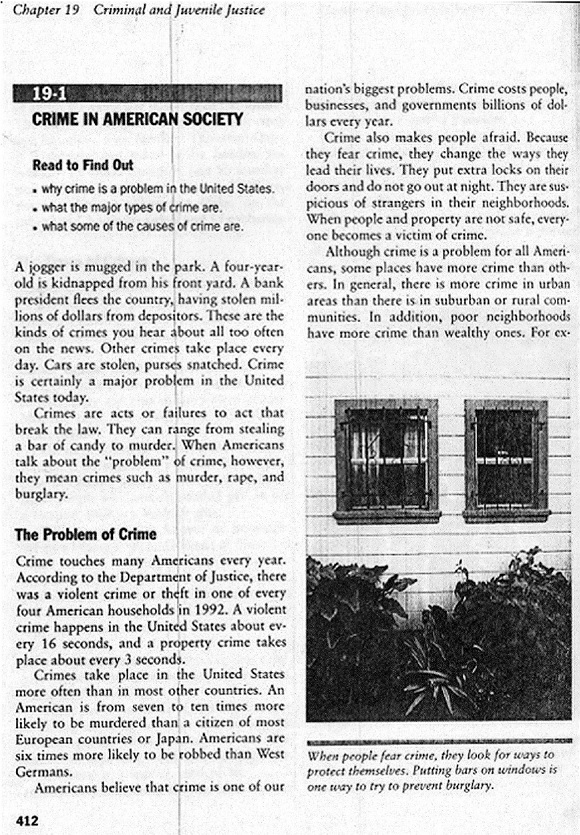
Appendix C: Sample of a Student’s Own Analysis

How to Cite
APA
ACM
ACS
ABNT
Chicago
Harvard
IEEE
MLA
Turabian
Vancouver
Download Citation
CrossRef Cited-by
1. Batool Assim Hamid, Amra Ibrahim Sultan. (2022). Investigation the Importance of the Four English Language Skills in Teaching a New ELP (English for Legal purposes) Course Design. مجلة آداب الفراهيدي, 14(48), p.599. https://doi.org/10.51990/jaa.14.48.3.27.
2. Eliana Edith Roberto Florez, Gladis Leonor Arias-Rodríguez, Yomaira Angélica Herreño-Contreras. (2022). Constructing Critical Thinking Scenarios in Online Legal English Classes. GIST – Education and Learning Research Journal, 24, p.119. https://doi.org/10.26817/16925777.1339.
3. Karen Johana Garay Alquichire. (2016). La lecture critique pour développer les processus cognitifs chez des étudiants universitaires de FLE niveau B2, une étude qualitative. Matices en Lenguas Extranjeras, (10), p.53. https://doi.org/10.15446/male.n10.55226.
Dimensions
PlumX
Article abstract page views
Downloads
License

This work is licensed under a Creative Commons Attribution-NonCommercial-NoDerivatives 4.0 International License.
You are authorized to copy and redistribute the material in any medium or format as long as you give appropriate credit to the authors of the articles and to Profile: Issues in Teachers' Professional Development as original source of publication. The use of the material for commercial purposes is not allowed. If you remix, transform, or build upon the material, you may not distribute the modified material.
Authors retain the intellectual property of their manuscripts with the following restriction: first publication is granted to Profile: Issues in Teachers' Professional Development.



